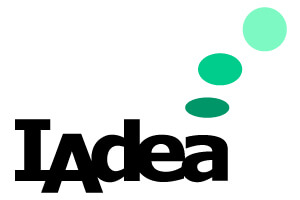
Quick Answer:
MDEP (Microsoft Device Ecosystem Platform) is Microsoft’s enterprise-focused Android distribution, built on the Android Open Source Project (AOSP) but enhanced for secure, scalable business deployment. While AOSP is a flexible, open-source foundation used in everything from smartphones to IoT devices, MDEP is optimized for enterprise collaboration hardware—offering advanced security, centralized device management, and seamless integration with Microsoft services like Teams, Intune, and Azure AD.
For organizations deploying hardware that needs to meet stringent IT policies for security and manageability, MDEP delivers enterprise-grade functionality out of the box, reducing integration overhead, lowering long-term risk, and aligning with zero-trust strategies and hybrid work needs.
Overview – Understanding MDEP vs AOSP
What is Android Open Source Project (AOSP)?
The Android Open Source Project (AOSP) is the foundation of the Android operating system. It is a free and open-source project managed by Google that enables manufacturers to build customized versions of Android for smartphones, tablets, and other devices. While AOSP is versatile and customizable, it lacks native enterprise features such as centralized updates, robust device management, and built-in security enhancements—leaving much of the responsibility to OEMs.
What is Microsoft Device Ecosystem Platform (MDEP)?
MDEP is Microsoft’s enterprise-focused Android distribution. Built on AOSP, it is designed for business-critical hardware such as Microsoft Teams Panels, meeting room systems, and desk phones. Microsoft enhances AOSP with enterprise security (e.g., hardware-based attestation, secure boot), centralized management (via Microsoft Intune), and deep integration with Microsoft Teams and 365.
Learn more in our detailed guide: What is MDEP – The Microsoft Ecosystem for Android Devices
Why Compare MDEP vs AOSP for Enterprise Use?
This comparison isn’t just about features—it’s about choosing the right foundation for your business strategy.
- For OEMs: The platform affects time-to-market, certification requirements, support costs, and your ability to serve enterprise customers.
- For IT Admins: Platform choice determines ease of deployment, compliance management, and long-term supportability.
- For Business Decision-Makers: This is about risk, scalability, and aligning your hardware and software stack with the Microsoft ecosystem.
Core Comparison Table – MDEP vs AOSP at a Glance
| Feature | Android AOSP | MDEP (Microsoft Device Ecosystem Platform) |
|---|---|---|
| Base OS | Open-source Android | Built on AOSP with Microsoft enterprise enhancements |
| Security | Vendor-dependent | Hardware Attestation, Secure Boot, PKI, TrustZone |
| OS Updates | Vendor-dependent | Microsoft-managed updates & patches |
| Device Management | Requires third-party MDM | Native integration with Microsoft Intune |
| Ecosystem | Vendor-dependent | Deep integration with Microsoft cloud services |
| Ideal Use Case | Non-critical devices | Devices that need to integration with enterprise infrastructure |
| Update Consistency | Vendor-dependent | Standardized across devices |
| Customization | Fully open | Controlled flexibility + Microsoft standardization |
| Target Audience | General manufacturers | Enterprise-focused OEMs & IT teams |
Business-Oriented Comparison – Which Platform Supports Your Enterprise Goals?
1. Long-Term Security and Risk Mitigation
AOSP requires each OEM to manage their own security patches and firmware updates. This leads to fragmentation, delays, and potential vulnerabilities.
MDEP, on the other hand, ensures Microsoft delivers security patches regularly—reducing business risk, simplifying compliance, and giving IT teams peace of mind.
Business Impact:
Lower risk of breaches, easier compliance audits, and better uptime for mission-critical devices.
2. Operational Efficiency and IT Cost Reduction
Managing AOSP-based devices at scale requires custom integrations or third-party MDMs. This adds setup time, IT workload, and maintenance costs.
MDEP integrates natively with Microsoft Intune, streamlining provisioning, policy enforcement, and fleet-wide updates.
Business Impact:
Reduced IT overhead, faster deployment, and lower total cost of ownership (TCO).
3. Speed to Market and Product Differentiation for OEMs
AOSP offers full flexibility, but that also means OEMs must build their own enterprise stack—security, firmware testing, and Microsoft compatibility included.
MDEP shortens this cycle with pre-integrated Microsoft standards and tooling, especially for Teams-certified devices.
Business Impact:
Faster development, stronger go-to-market positioning, and faster ROI.
4. Seamless Integration with Microsoft Ecosystem
AOSP devices require additional work to integrate with Microsoft services. For MDEP devices, that integration is native and certified.
Business Impact:
A better user experience, less time troubleshooting, and higher user satisfaction—especially in Microsoft-first IT environments.
5. Platform Predictability and Enterprise Support
OEMs using AOSP must manage different Android versions and security policies across hardware. Enterprises face fragmented support models.
MDEP provides a predictable, standardized experience backed by Microsoft. Enterprises know what to expect.
Business Impact:
Streamlined support, standardized rollout processes, and fewer surprises for IT teams.
Final Verdict: AOSP vs MDEP – Which Platform Should You Bet On?
If your organization prioritizes scalability, security, and seamless integration with Microsoft Teams and 365, MDEP is purpose-built for that mission.
AOSP remains a great option for general or non-IT-centric devices. But if you’re building or managing enterprise collaboration hardware, MDEP offers the long-term stability, security, and integration your business—and your IT department—needs.
Still unsure? Explore our in-depth comparisons and use cases across our MDEP content series.
👉 What is MDEP – The Microsoft Ecosystem for Android Devices
👉 MDEP Security Features – How Microsoft Secures Enterprise Android Devices
Build with Confidence – Partner with IAdea
IAdea is a licensed MDEP device partner. If you’re an OEM, developer, or IT decision-maker looking to launch secure, Teams-ready collaboration devices:
- Get end-to-end MDEP development & deployment support
- Build with Microsoft’s security stack baked in
- Launch faster with IAdea’s hardware + software expertise
Contact IAdea today to see how we can help your business build the next generation of MDEP-powered devices.

